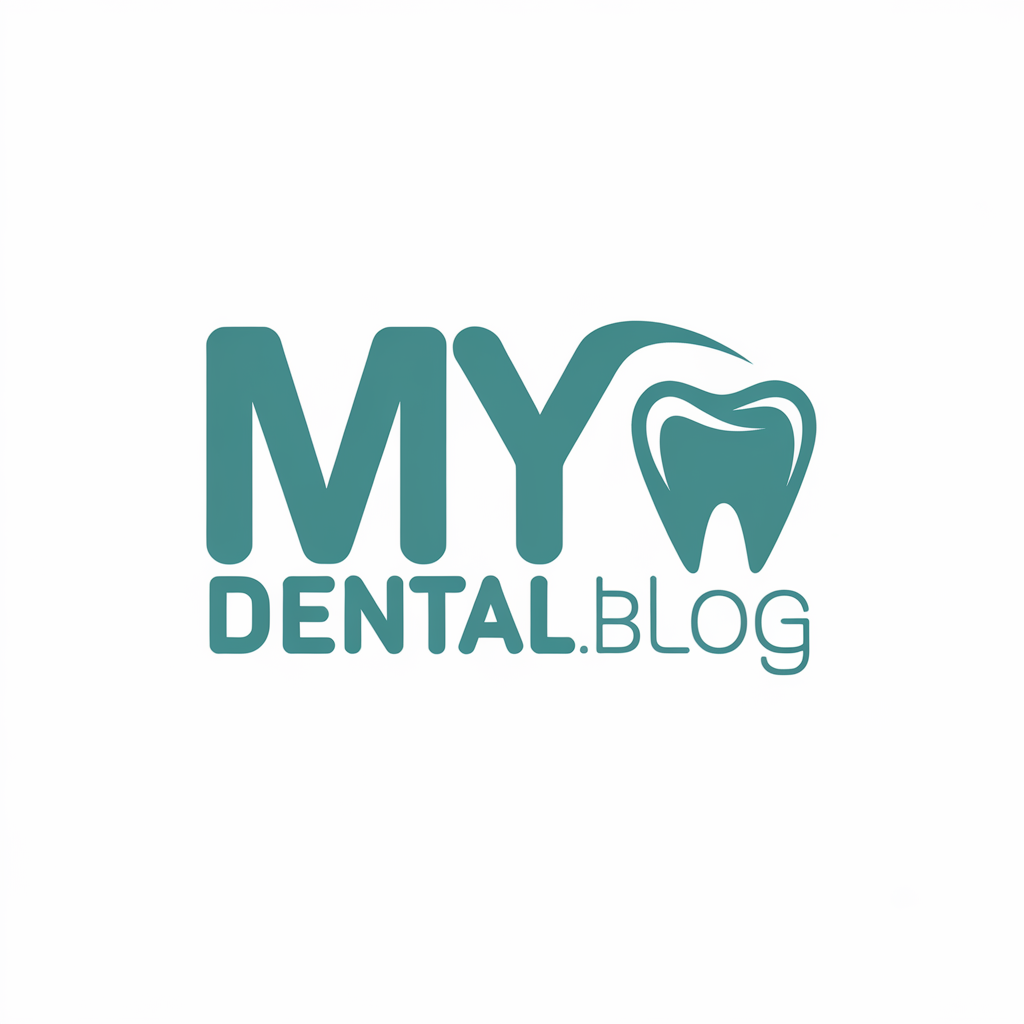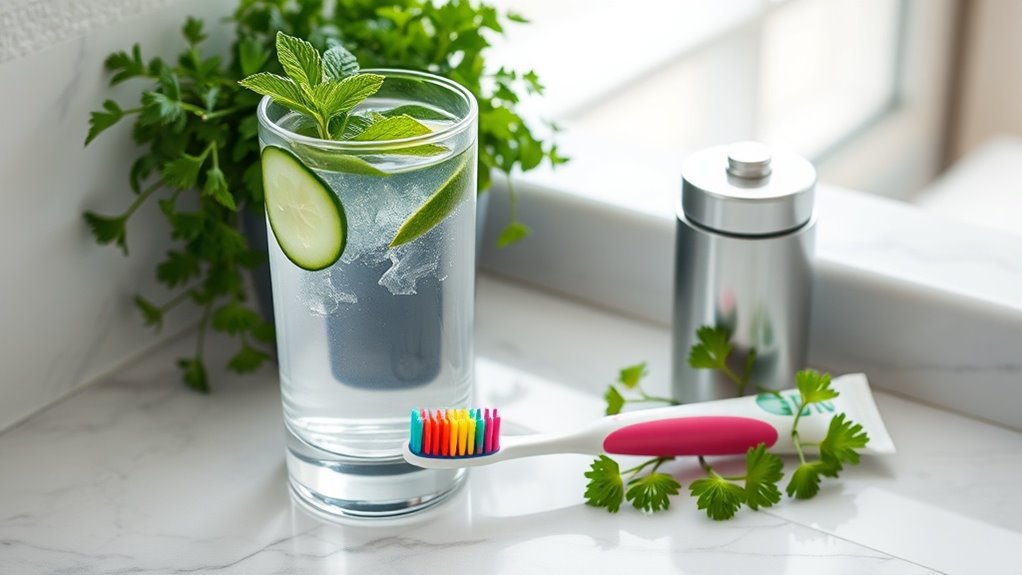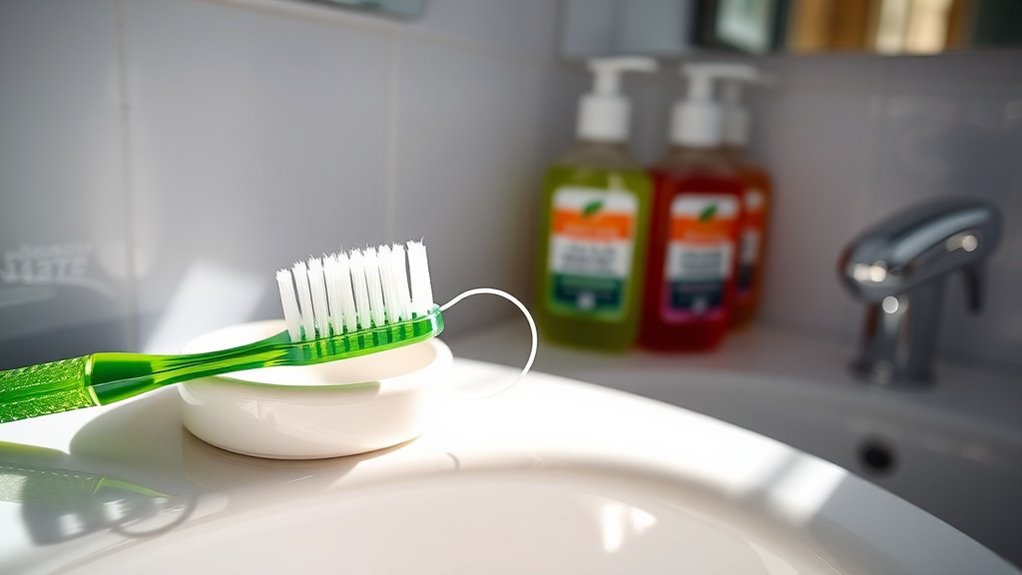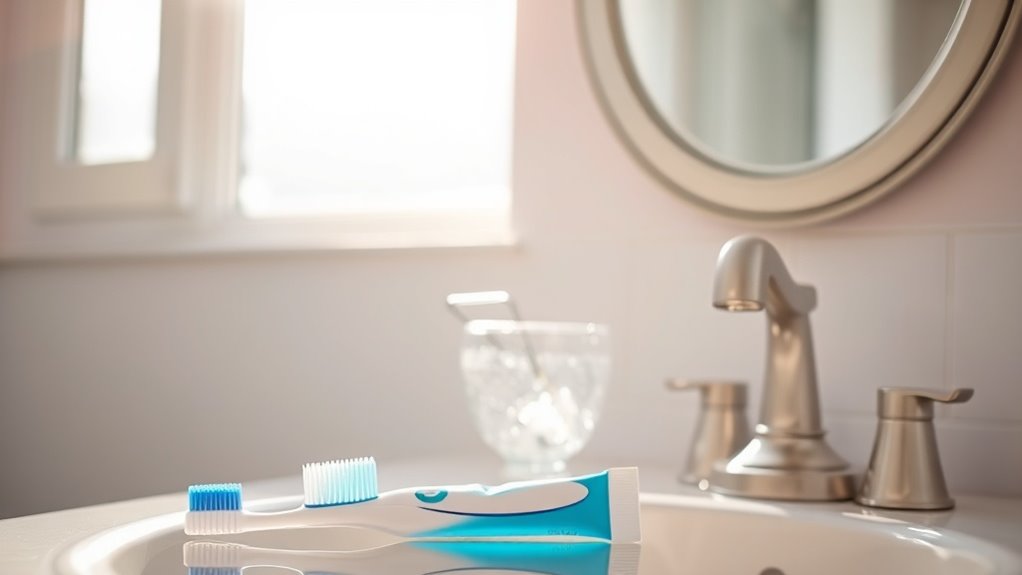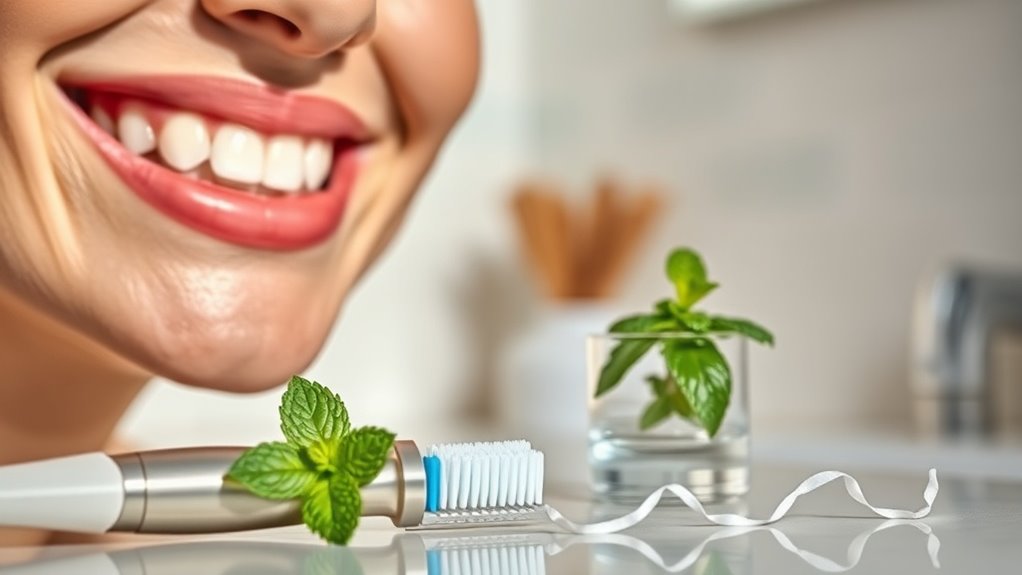Your Mouthwash Might Be Making Your Breath WORSE – Here’s Why!
You might think mouthwash is your best ally for fresh breath, but it could be doing more harm than good. Many popular brands contain alcohol, which can dry out your mouth and encourage bacteria growth. If you’re using mouthwash daily, you may not realize how it’s disrupting the natural balance of bacteria. Curious about the hidden consequences of your routine and what alternatives exist? Let’s explore this further.
The Impact of Alcohol-Based Mouthwashes on Oral Health
While you might reach for an alcohol-based mouthwash to combat bad breath, it’s important to consider its effects on your oral health. Many people don’t realize that these mouthwash products can actually lead to mouthwash mistakes. The alcohol content can dry out your mouth, reducing saliva production, which is crucial for maintaining a healthy oral environment.
When your mouth gets dry, bacteria can thrive, potentially making your breath worse in the long run. Instead of reaching for that familiar bottle, think about alternatives that won’t strip away your mouth’s natural defenses. Overuse of mouthwash can disrupt the oral microbiome balance, leading to further complications in your oral health.
There are alcohol-free options that can freshen your breath without the harmful side effects. By choosing wisely, you can promote better oral health while still feeling confident in your smile.
Disrupting the Oral Microbiome: How Mouthwash Affects Bacteria Balance
When you use mouthwash, you mightn’t realize that it can disrupt the delicate balance of bacteria in your mouth. Your mouth hosts a complex community of bacteria, some of which are beneficial for your oral health.
When you reach for that minty mouthwash, especially those with strong antibacterial agents, you may be wiping out not just the bad bacteria but the good ones too. This imbalance can lead to issues like dry mouth, which can ironically contribute to bad breath over time. Additionally, over-reliance on mouthwash may create an environment conducive to bad breath that could be avoided with proper oral hygiene.
Instead of relying solely on mouthwash, consider focusing on natural methods to maintain your oral microbiome. Eating a balanced diet, staying hydrated, and practicing good oral hygiene can help keep your mouth’s ecosystem thriving.
After all, everyone wants fresh breath and a healthy smile. By understanding how mouthwash affects your mouth, you can make more informed choices that benefit your overall oral health and connect with others who care about their smiles.
Overuse of Mouthwash: The Hidden Consequences
Although mouthwash can be a convenient tool for freshening your breath, overusing it can lead to unexpected consequences. Many people don’t realize that excessive use can disrupt your oral microbiome, where beneficial bacteria thrive. Without these good bacteria, you might find yourself facing a cycle of bad breath, as harmful bacteria can flourish in their absence.
Moreover, the alcohol in some mouthwashes can dry out your mouth, leading to discomfort and even more bad breath. You may feel like you’re doing the right thing, but over-relying on mouthwash can mask underlying issues instead of addressing them. In fact, overuse can cause oral mucosal irritation, which may further exacerbate your discomfort and breath issues.
It’s essential to balance mouthwash with proper brushing and flossing. Think of mouthwash as a supplement, not a replacement.
Signs You May Be Using Mouthwash Incorrectly
Using mouthwash incorrectly can undermine your efforts to maintain fresh breath and good oral health.
If you’re rinsing less than 30 seconds, you mightn’t be giving the ingredients enough time to work effectively. Swallowing mouthwash? That’s a definite red flag; it’s not meant to be ingested.
Also, if you’re using mouthwash immediately after brushing your teeth, you could wash away the benefits of your toothpaste. It’s best to wait a bit.
Not noticing any improvement in your breath after using mouthwash? This could mean you’re not using the right type for your needs.
Finally, if your mouth feels dry or irritated after rinsing, you might be using a product with alcohol or harsh chemicals. Additionally, using mouthwash may not address underlying medical issues that could be contributing to persistent bad breath.
Pay attention to these signs, and you’ll be on your way to ensuring your mouthwash routine truly supports your journey to fresh breath and a healthy smile!
Natural Alternatives for Fresh Breath Without Mouthwash
If you’re looking for fresh breath without relying on mouthwash, there are plenty of natural alternatives that can do the trick.
These options not only help combat bad breath but also foster a sense of community around healthier habits. Here are some to consider:
-
Mint Leaves: Chewing fresh mint leaves can provide instant freshness and promote oral health.
-
Green Tea: This antioxidant-rich drink can reduce bacteria in your mouth, giving you a fresher breath.
-
Baking Soda: A simple rinse with a baking soda solution can neutralize odors effectively.
-
Apple Cider Vinegar: Diluting this in water can help balance your mouth’s pH and freshen your breath.
-
Cinnamon: Chewing on cinnamon sticks or using cinnamon powder can eliminate bad breath-causing bacteria.
In addition to these methods, maintaining proper oral hygiene practices is essential for preventing bad breath.
